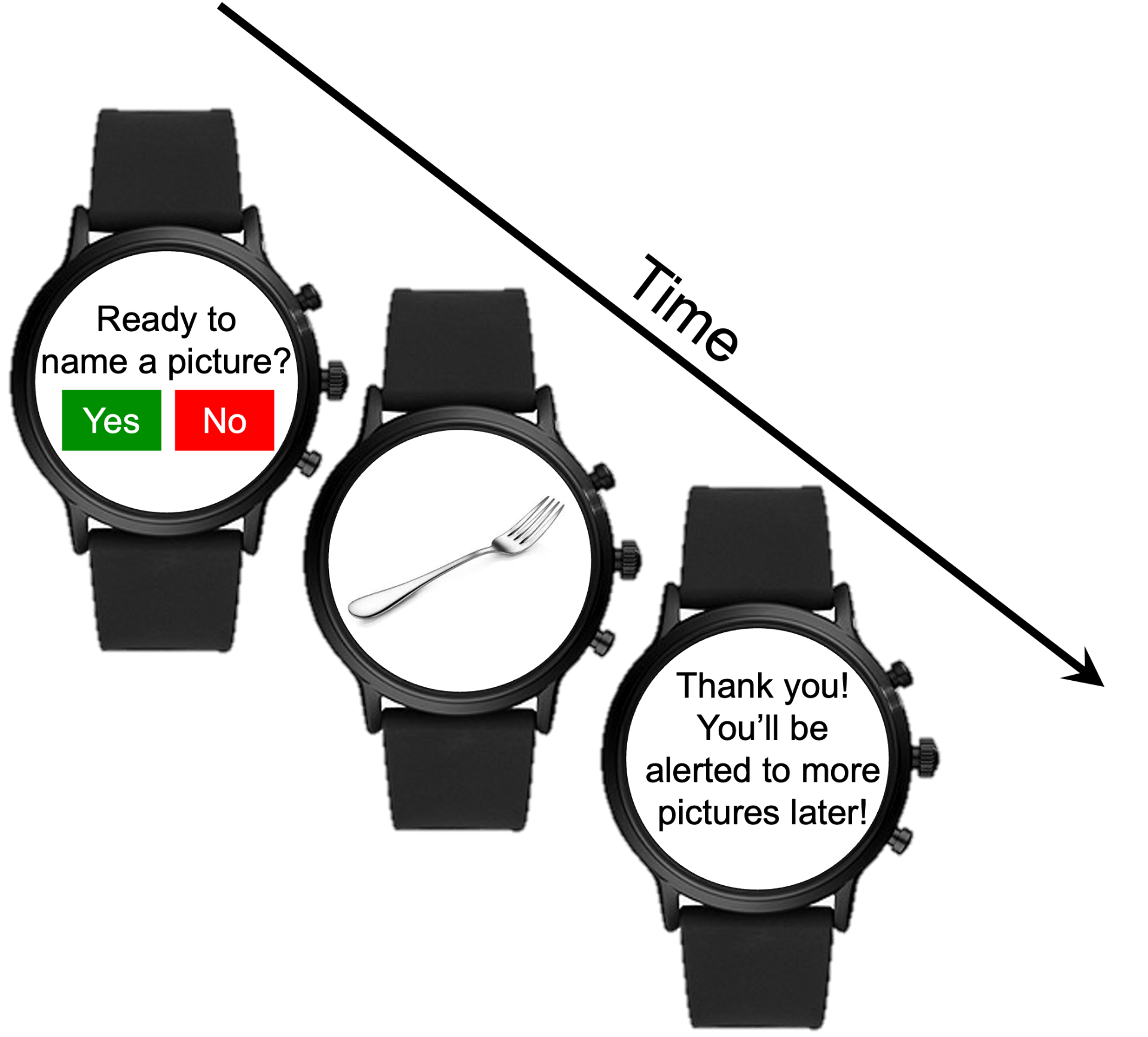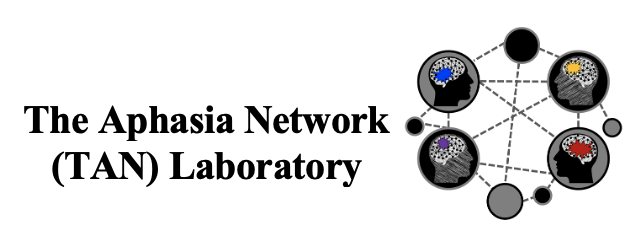Word Retrieval in The Wild: An Ecological Momentary Assessment (EMA) Pilot Study In People With Post-Stroke Aphasia
AKA "The Smartwatch Study"
What was the study about?
Anomia – or impaired word retrieval – is one of the most common deficits in people with aphasia. This study seeks to assess how mobile health technologies can be used to measure real-world language difficulties in stroke survivors with aphasia. The goals of this study were:
1. To better understand the process that people with post-stroke aphasia use to retrieve words.
2. To help researchers improve methods for measuring anomia in real-world contexts, like at home and in the community.
What did this study involve?
- The study included 5 weeks of participation.
- Week 1: Initial cognitive-linguistic testing and smartwatch training.
- Weeks 2-4: Participants completed the smartwatch naming protocol at home (~10 minutes of picture naming practice, spread out throughout the day)
- Week 5: Follow-up testing and exit interview. Participants were encouraged to share their thoughts about the positive and negative aspects of wearing the smartwatch.
Who participated?
- 14 adults with post-stroke aphasia, who had a stroke at least 6 months ago.
- 14 adults with no history of neurological disease.

Participants borrowed a Fossil smartwatch to wear at home during the study. Before the study, participants were trained on how to use the watch.

An example EMA trial is shown above. When the watch chimes, a “Ready?” screen appears. If the participant selects “Yes,” a picture appears on the watch. The participant’s voice is recorded while they try to name the picture.

TAN Lab member Leanna Ugent tests a smartwatch on the Northeastern quad.
Approved by Northeastern IRB, #22-03-15
Funded by the Tufts CTSI Pilot Studies Program Award (subaward of NIH UL1 TR002544) & The AbilityLab Center for Smart Use of Technologies to Assess Real-World Outcomes (C-STAR) Pilot Project Award (subaward of NICHD/NINDS P2 CHD101899)
PIs: Erin Meier & Stephen Intille
